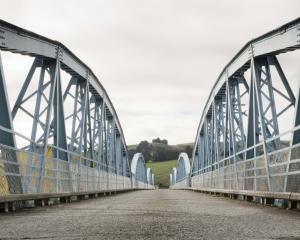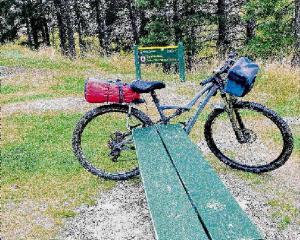The Government would not endorse Contact Energy's intention to promote building more hydro-electric dams on the Clutha River, Energy Minister David Parker said in Alexandra yesterday.
"I am confident we'll have alternatives which don't require us to dam even more of our ever-dwindling number of unmodified rivers."
Mr Parker added the Government would not bow to pressure from Contact to change the Resource Management Act to make it easier to develop such projects.
But Contact said yesterday that if its investigations "stacked up", then it was hoped one or all of four schemes being considered - Beaumont, Luggate, Queensberry and a power station at the Hawea dam - could be "advanced in some form" by 2015.
Contact's plans to dust off Clutha River projects were revealed in last Saturday's Otago Daily Times, prompting its chief executive, David Baldwin, to confirm in a radio interview yesterday his company was thinking beyond geothermal and wind generation.
"If we were to think about hydro, as we think about geo-thermal today, as an alternative to, say, natural gas - particularly when you have to import that natural gas - then hydro may be an option that's more palatable than it has been over the last five to 10 or 20 years or so," he said.
Mr Baldwin could not be contacted by the ODT and communications manager Jonathan Hill appeared to distance himself from those comments by saying the company had made no commitment to building any dams.
While Contact had its plate full now with geothermal and wind generation projects, it also needed to look at other options like hydro-electricity in the coming few years, Mr Hill said.
"If we saw a project that stacked up and was feasible and viable, we might be looking to advance it in some form by the middle of next decade . . .
"I don't want to blow this out of proportion. All we're doing is dusting off some old plans . . ."
Reviewing the three Clutha schemes was very much a long-term move, Mr Hill said.
It would be concentrating on its geo-thermal and wind developments for the next few years and had $3 billion tied up in projects which were at various stages.
Contact has already secured resource consent for a 16MW scheme on the Hawea dam and its board will meet soon to consider giving that project the final investment tick.
But Mr Parker, in Alexandra yesterday to give a lecture on climate change, said he did not want to see further damming of rivers in Otago, or throughout New Zealand, particularly where a renewable energy alternative such as wind energy or geo-thermal power was available.
The Government's priority for new energy generation was with projects which had the most reversible environmental impact, which was a difficult concept in terms of hydro generation.
"The environmental effects of geothermal power generation are easy to reverse, wind is in the middle, and hydro is at the bottom. We don't need to dam the rest of our rivers," he said.
Mr Parker said Contact had approached the Government about the possibility of changes being made to the RMA, which would enable new large-scale hydro energy generation to be more easily developed.
"Contact said this morning the Government would need to intervene and change the RMA. Essentially, what they are saying is we should lower the environmental hurdle provided by the RMA.
"We are not planning to change the RMA to make it easier to develop major hydro projects."
Mr Parker promised Central Otago would not experience the likes of another Clyde dam project as long as Labour was in power.
"Under the Labour Government, and in terms of Otago, you have my absolute promise that we will never do what the National government did in view of the Clyde dam. That's a promise so strongly held within the Government - we would never do it," he said.
National Party leader John Key, questioned yesterday about Contact's renewed interest in Clutha River power projects, said the party would need to look at each proposal, particularly as new hydro dams would have an impact on the communities of Luggate, Queensberry and Beaumont.













